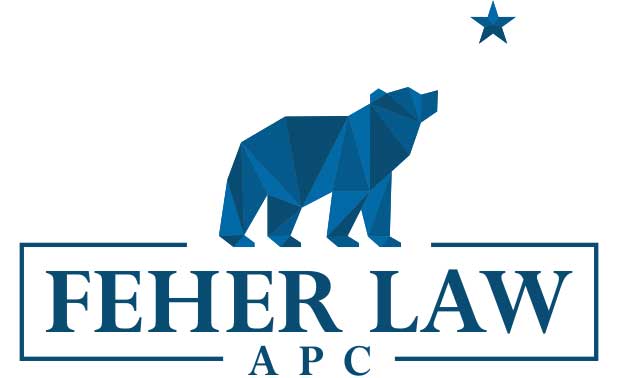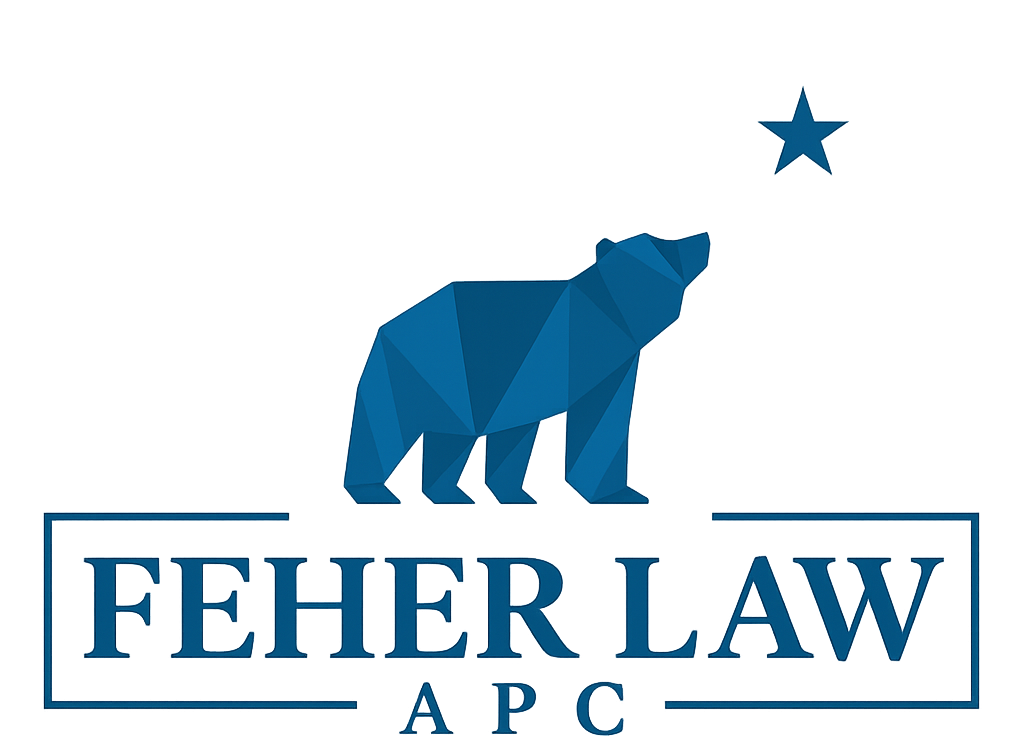My Car Was Hit and Their Insurance Won’t Pay in California
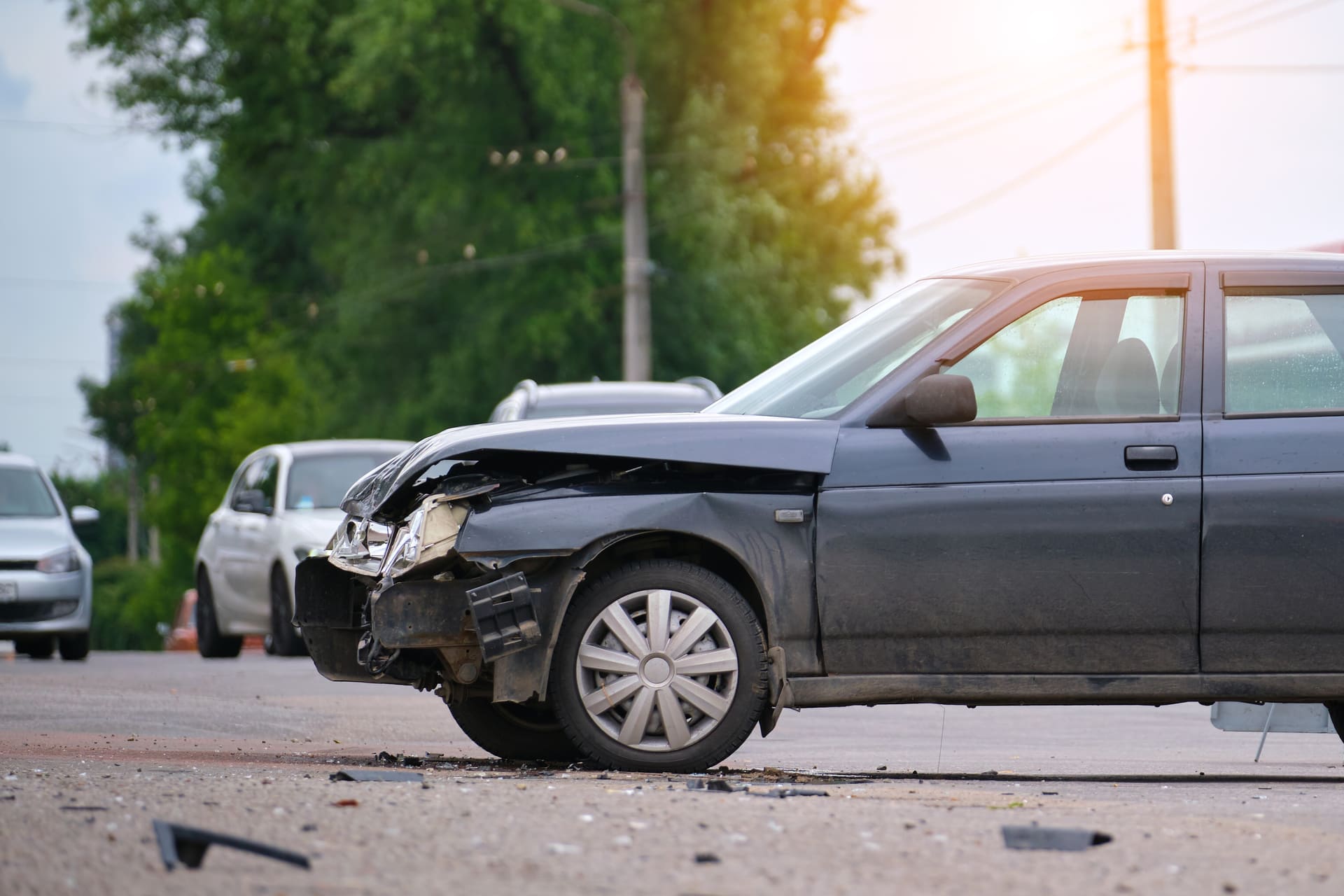
If your car was hit in California and their insurance won’t pay, here are the essential steps to take:
- Document the denial and gather additional evidence
- Review your insurance coverage options
- File a complaint with the California Department of Insurance
- Consider legal representation for complex disputes
- Explore legal remedies, including bad faith claims
The financial toll of an unpaid insurance claim can devastate your family’s budget. Without prompt action, you may face mounting medical bills, vehicle repair costs, and lost wages while the insurance company delays or denies your rightful compensation. The longer you wait, the harder it becomes to gather evidence and build a strong case.
At Feher Law, our experienced attorneys have successfully recovered millions for California accident victims. Our recent case results demonstrate our commitment to fighting for maximum compensation:
- $14,600,000: Bicycle crash resulting in spine injury – Orange County verdict against Suzuki Motor Corp
- $4,200,000: Auto crash causing back injury – Long Beach settlement
- $4,000,000: Auto crash involving PTSD and concussion – Los Angeles verdict against M&N Rug Enterprise, LLC
Our California car accident attorney team is ready to fight for the compensation you deserve.
What to Do When an Insurance Company Won't Pay
Many drivers wonder what to do after a car accident that’s not your fault, especially when the at-fault driver’s insurance refuses to cover damages. Taking the right steps can significantly impact your ability to recover compensation and protect your legal rights.
The insurance claim process becomes more complex when faced with denials or delays. However, California law provides multiple avenues to pursue the compensation you need, even when the at-fault driver’s insurance won’t pay.
1. Document the Denial and Gather Additional Evidence
Start by requesting a written explanation of the denial from the insurance company. California requires insurers to provide specific reasons for claim denials. This documentation becomes vital if you need to file a complaint or pursue legal action later.
Collect comprehensive evidence to strengthen your case. Obtaining a copy of the police report, witness statements, and photographs from the accident scene provides the foundation for disputing the insurance company’s decision.
2. Review Your Insurance Coverage Options
Your insurance policy may provide coverage when the at-fault driver’s insurance refuses to pay for damages. Collision coverage can pay for vehicle repairs regardless of fault, while uninsured/underinsured motorist coverage protects you when the other driver lacks adequate insurance.
Contact your insurance company immediately to understand your coverage options. Many policies include rental car coverage and medical payments that can help while you resolve the dispute with the at-fault driver’s insurer.
3. File a Complaint with the California Department of Insurance
If you believe the insurance company is acting in bad faith, filing a complaint with the California Department of Insurance can prompt an investigation and resolution. The department has the authority to investigate unfair claim practices and can pressure insurers to honor valid claims.
4. Consider Legal Representation for Complex Disputes
When negotiations with the insurance company fail, our experienced attorneys can leverage their knowledge of California law to protect your rights. Legal representation becomes essential when dealing with significant damages, disputed liability, or insurance companies that consistently refuse reasonable settlement offers.
5. Explore Legal Remedies, Including Bad Faith Claims
California’s fault-based system means that the person responsible for the accident must pay for the resulting damages. When insurance companies fail to act in good faith, additional legal remedies may be available beyond your original claim.
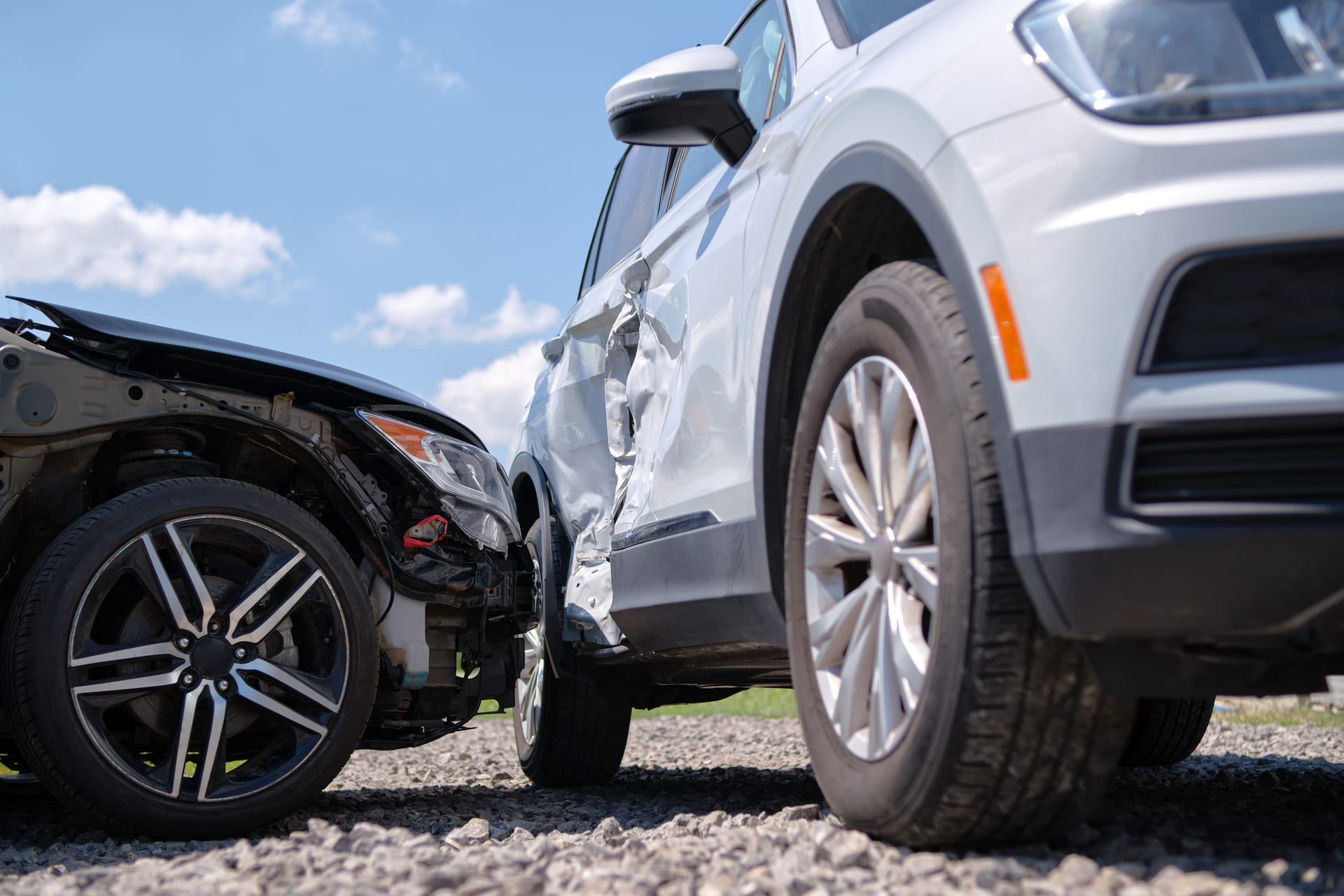
Protecting Your Rights: Documentation and Evidence
Building a strong case against an uncooperative insurance company requires comprehensive documentation. The right evidence can transform a disputed claim into a successful settlement.
- Police report: Official documentation of the accident scene, including officer observations and any citations issued
- Witness statements: Independent accounts from people who saw the accident occur
- Medical records: Complete documentation of injuries and treatment received
- Property damage estimates: Professional assessments of vehicle damage and repair costs
- Insurance correspondence: All communications with the insurance company, including denial letters
- Lost wage documentation: Employment records showing income lost due to the accident
✔️ Our legal team works closely with clients to ensure no critical evidence is missed, helping to build a strong foundation for negotiations or the court, if necessary.
At Fault Driver's Insurance Won't Pay the Full Amount - Your Options
When an insurance company acknowledges partial liability but disputes the full amount owed, you’re facing a common tactic used to minimize payouts. This situation requires strategic action to recover complete compensation.
California’s comparative negligence law allows for partial fault allocation, which insurers often exploit to reduce settlement amounts. Even if you bear some responsibility for the accident, you can still recover damages proportional to the other driver’s fault percentage.
Settlement negotiations become critical when facing partial payment offers. Insurance companies frequently make low initial offers, hoping victims will accept inadequate compensation rather than fight for full recovery.
Challenging Insufficient Settlement Offers
When the at-fault driver’s insurance won’t pay the full amount you deserve, follow these steps to challenge their decision:
- Calculate total damages: Document all costs, including medical expenses, property damage, lost wages, and pain and suffering
- Gather supporting evidence: Collect additional documentation that proves the full extent of your damages
- Present a detailed demand: Submit a comprehensive demand letter outlining why you deserve full compensation
- Negotiate systematically: Use evidence to counter the insurance company’s arguments for reduced payments
- Consider mediation: Explore alternative dispute resolution before pursuing litigation
A common question in this phase is what happens when you reject an insurance settlement offer. Doing so can lead to further negotiation, a revised offer, or escalation to a lawsuit, depending on the circumstances.
Our law firm has extensive experience in negotiations with insurance companies, consistently achieving settlements that reflect our clients’ true damages rather than accepting inadequate initial offers.
How to Get the At-Fault Driver's Insurance Company Information
Obtaining accurate insurance information becomes vital when the at-fault driver’s insurance company won’t pay for your damages. Sometimes this information wasn’t properly exchanged at the accident scene, or the other driver provided false details.
Contact the California Highway Patrol to request official accident reports. These documents typically include insurance information for all parties involved. California requires drivers to provide proof of insurance at accident scenes, and failure to do so carries penalties including license suspension.
If the accident involved a hit-and-run, your uninsured motorist coverage may apply. The California Department of Motor Vehicles maintains records that can help identify vehicles and their registered owners, though accessing this information may require legal assistance.
Our Torrance car accident lawyer can help you handle insurance disputes and gather the critical evidence needed to strengthen your claim.
California's Fault-Based Insurance System
California operates under a fault-based system, meaning that the person responsible for causing an accident bears financial responsibility for resulting damages. This system directly impacts how claims are handled when insurance refuses to pay.
Unlike no-fault states where each driver’s insurance covers their own damages regardless of who caused the accident, California’s fault-based system requires the at-fault driver’s insurance to pay for the victim’s losses. This creates opportunities for full recovery but also leads to disputes over fault determination.
Who Pays for Damages in a Car Accident
Understanding responsibility for different types of damages helps you know where to seek compensation:
- At-fault driver’s liability insurance: Covers medical expenses, property damage, and other losses for victims
- Your collision coverage: Pays for your vehicle damage regardless of fault
- Your medical payments coverage: Provides immediate medical expense coverage
- Uninsured/underinsured motorist coverage: Protects when the at-fault driver lacks adequate insurance
- Personal injury protection: Additional medical and wage loss coverage if purchased
California's Minimum Insurance Requirements and Coverage Gaps
California requires all drivers to maintain minimum liability insurance coverage of $15,000 per person for bodily injury, $30,000 per accident for bodily injury, and $5,000 for property damage. These minimums are often insufficient for serious accidents.
| Coverage Type | Minimum Required | Average Accident Cost | Gap |
|---|---|---|---|
| Bodily Injury (per person) | $15,000 | $57,000 | $42,000 |
| Bodily Injury (per accident) | $30,000 | $126,000 | $96,000 |
| Property Damage | $5,000 | $4,700 | Usually adequate |
📌 When damages exceed the at-fault driver’s policy limits, you may need to pursue compensation through your own underinsured motorist coverage or file a lawsuit against the responsible party personally.
Common Reasons Insurance Companies Deny or Reduce Claims
Insurance companies use various tactics to minimize payouts, even when their policyholder is clearly at fault. Understanding these strategies helps you prepare effective responses.
Common denial reasons include:
- Disputing liability: Claiming their policyholder wasn’t at fault or that you share responsibility
- Questioning damage extent: Arguing that injuries or property damage aren’t as severe as claimed
- Policy exclusions: Citing specific policy language to avoid coverage
- Late reporting: Using delayed claim filing as grounds for denial
- Pre-existing conditions: Arguing that injuries existed before the accident
- Insufficient evidence: Claiming inadequate proof of damages or causation
💡 Hypothetical Scenario: A rear-end collision victim receives a denial letter claiming the accident was caused by the victim’s sudden stop. The insurance company argues its driver couldn’t avoid the collision. However, California law requires following drivers to maintain safe distances, making this denial likely invalid under state traffic laws.
Our Huntington Beach car accident lawyer provides personalized attention to ensure you receive the full compensation you deserve.
Your Insurance Coverage Options When Others Won't Pay
When the at-fault driver’s insurance refuses to pay, your coverage may provide immediate relief while you pursue compensation from the responsible party. Understanding your policy options prevents delays in getting necessary medical treatment or vehicle repairs.
Collision coverage pays for vehicle damage regardless of who caused the accident. Your insurance company then seeks reimbursement from the at-fault driver’s insurer through subrogation. This approach gets your car repaired quickly without waiting for lengthy insurance disputes.
Uninsured/underinsured motorist coverage becomes invaluable when dealing with inadequate insurance. This coverage protects you when the at-fault driver has no insurance or policy limits that are insufficient to cover your damages.
Medical payments coverage provides immediate access to medical care regardless of fault determination. This coverage can be key for prompt treatment while liability questions are resolved.
| Coverage Type | What It Covers | When It Applies |
|---|---|---|
| Collision | Vehicle damage from crashes | Regardless of fault |
| Comprehensive | Non-collision damage (theft, vandalism) | When other causes damage to your vehicle |
| Uninsured Motorist | Injuries from uninsured drivers | When the at-fault driver has no insurance |
| Underinsured Motorist | Damages exceeding the other driver’s limits | When the at-fault driver has insufficient coverage |
| Medical Payments | Medical expenses from accidents | Regardless of fault determination |

Subrogation in California
Subrogation allows your insurance company to recover costs from the at-fault party after paying your claim. This process can help you recover your deductible and prevent your rates from increasing due to an accident that wasn’t your fault.
Your insurer essentially steps into your shoes to pursue the at-fault driver’s insurance company. Successful subrogation means you get your deductible back and the claim doesn’t count against your driving record. However, you may need to cooperate with your insurance company’s subrogation efforts, including providing testimony or evidence.
Are There Situations Where Insurance Won't Help?
Understanding when insurance legitimately won’t provide coverage helps you set realistic expectations and explore alternative options. Some situations genuinely fall outside insurance coverage parameters.
Legitimate coverage exclusions include:
- Intentional acts: When the driver deliberately caused the accident
- Criminal activity: Accidents occurring during the commission of crimes
- Commercial use exclusions: Personal policies may not cover business-related driving
- Racing or competition: Most policies exclude organized racing events
- Driving under the influence: Some policies exclude DUI-related accidents
- Unlicensed drivers: Coverage may be void if the driver lacks a valid license
💡 Hypothetical Scenario: A rideshare driver causes an accident while logged into the app but not carrying passengers. The driver’s insurance may deny coverage due to commercial use exclusions, while the rideshare company’s coverage might not apply during this specific phase of operation.
Our San Bernardino car accident attorney has experience handling complex coverage disputes and can help identify all potential sources of compensation.
Legal Remedies When Insurance Fails
When standard insurance processes fail to provide adequate compensation, California law offers several legal remedies. These options ensure you have recourse even when dealing with uncooperative insurers.
📌 Small claims court provides an accessible option for smaller disputes, typically those under $10,000. This venue allows you to present your case directly to a judge without extensive legal procedures. However, you cannot recover attorney fees in small claims court, so the economics only work for smaller claims.
Filing a lawsuit against the at-fault driver opens access to full compensation, including pain and suffering, lost wages, and punitive damages in extreme cases. Lawsuits also put pressure on insurance companies to settle rather than face uncertain jury verdicts.
Our experienced attorneys have a proven track record of securing favorable outcomes through litigation when insurance companies refuse reasonable settlement offers. We understand how to present compelling cases that motivate insurers to pay fair compensation.
Filing a Bad Faith Insurance Claim in California
California law requires insurance companies to act in good faith when handling claims. When insurers violate this duty, you may have grounds for additional compensation beyond your original damages.
Bad faith occurs when insurance companies unreasonably deny valid claims, delay investigations without justification, or fail to adequately investigate claims. California Insurance Code Section 790.03 specifically prohibits unfair claim settlement practices.
Successful bad faith claims can result in compensation for emotional distress, punitive damages, and attorney fees. These cases require experienced legal representation to handle complex insurance law and prove the insurer’s misconduct.
File complaints with the California Department of Insurance when you believe an insurance company is violating state regulations. The department investigates complaints and can take enforcement action against insurers who engage in systematic unfair practices.
When to Hire a California Car Accident Attorney
Determining when to seek legal representation can significantly impact your case outcome. Certain situations clearly require professional legal assistance to protect your rights and maximize compensation.
If you’re asking, should I get a lawyer for a car accident that wasn’t my fault? Consider hiring an attorney when facing serious injuries, disputed liability, or uncooperative insurance companies. Legal representation becomes essential when dealing with complex medical issues, permanent disabilities, or significant property damage that exceeds simple fender-bender scenarios.
Key indicators for seeking legal help include:
- Serious injuries requiring ongoing medical treatment
- Disputed fault with disagreement over who caused the accident
- Insurance company denials or unreasonably low settlement offers
- Multiple parties are involved in the accident
- Commercial vehicles or government entities as defendants
- Questions about insurance coverage or policy interpretation
Our injury law practice focuses exclusively on helping accident victims through complex insurance disputes and recovering full compensation. We handle all negotiations with insurance companies, allowing you to focus on recovery while we fight for your rights.
💡 Hypothetical Scenario: A client comes to us after attempting to handle their insurance claim following an intersection collision. The insurance company offers only $15,000, despite $25,000 in medical bills, and argues the client was partially at fault. In this situation, we would gather additional evidence — such as traffic camera footage, witness statements, and medical documentation — to challenge the liability determination and accurately reflect the client’s losses.
Our goal would be to pursue a full settlement that covers all medical expenses, lost wages, and pain and suffering — potentially securing a recovery closer to $85,000 based on similar cases we’ve handled.
Reach Out to Feher Law For Expert Legal Advice
Don’t let an insurance company minimize your claim or delay the compensation you deserve. At Feher Law, we understand how frustrating and overwhelming it can be to deal with denied or underpaid claims after an accident, especially when you’re already dealing with injuries, vehicle damage, and financial stress.
Our award-winning legal team has recovered over $100 million for clients and is prepared to stand up to negligent drivers and uncooperative insurers. We handle every aspect of your case, from evidence gathering to aggressive negotiations or litigation if necessary, all while keeping your recovery and peace of mind as our top priorities.
Call us today at (310) 340-1112 or contact us now to schedule your free, no-obligation consultation with an experienced personal injury attorney.

FAQs
How long do I have to file a claim after a car accident in California?
California’s statute of limitations gives you two years to file a personal injury lawsuit and three years for property damage claims from the accident date. However, insurance claims should be filed much sooner to preserve evidence and comply with policy requirements.
For more detailed information about time limits, visit our comprehensive guide on the California car accident statute of limitations.
Can I still recover compensation if I was partially at fault for the accident?
Yes, California’s comparative negligence law allows you to recover damages even if you bear partial responsibility for the accident. Your compensation will be reduced by your percentage of fault, but you can still pursue a significant recovery.
What happens if the at-fault driver doesn't have insurance or has insufficient coverage?
Your uninsured/underinsured motorist coverage provides protection when the at-fault driver lacks adequate insurance. If you don’t have this coverage, you may need to pursue the driver personally through legal action.
Will my insurance rates go up if I file a claim through my policy after someone else hit me?
Generally, rates shouldn’t increase when you file a not-at-fault claim through your collision or uninsured motorist coverage. However, some insurers may still raise rates, making it important to understand your policy terms.
How much does it cost to hire a car accident attorney in California?
Most car accident attorneys work on contingency fees, meaning you pay nothing unless they recover compensation for you. Typically, fees range from 33-40% of the settlement amount.
Related Posts
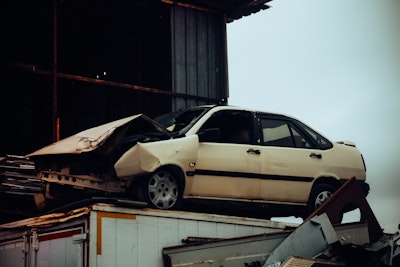
Colorado QB Dies in Single-Car Accident

Can I Sue a Drunk Driver in California?

Two Killed, Three Injured in Moorpark Head-On Crash


Two Dead, Three Injured in Ventura County Crash

